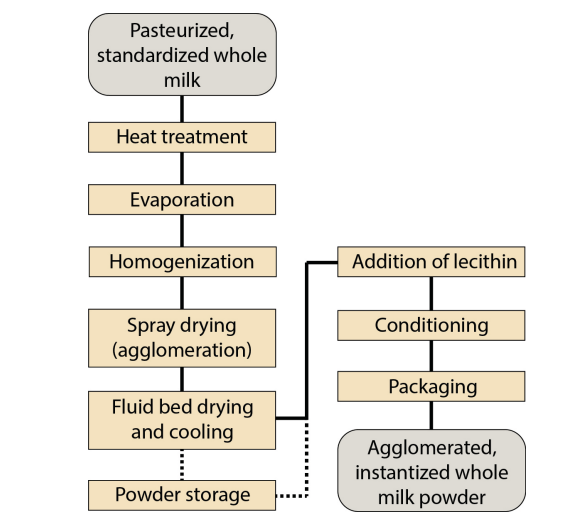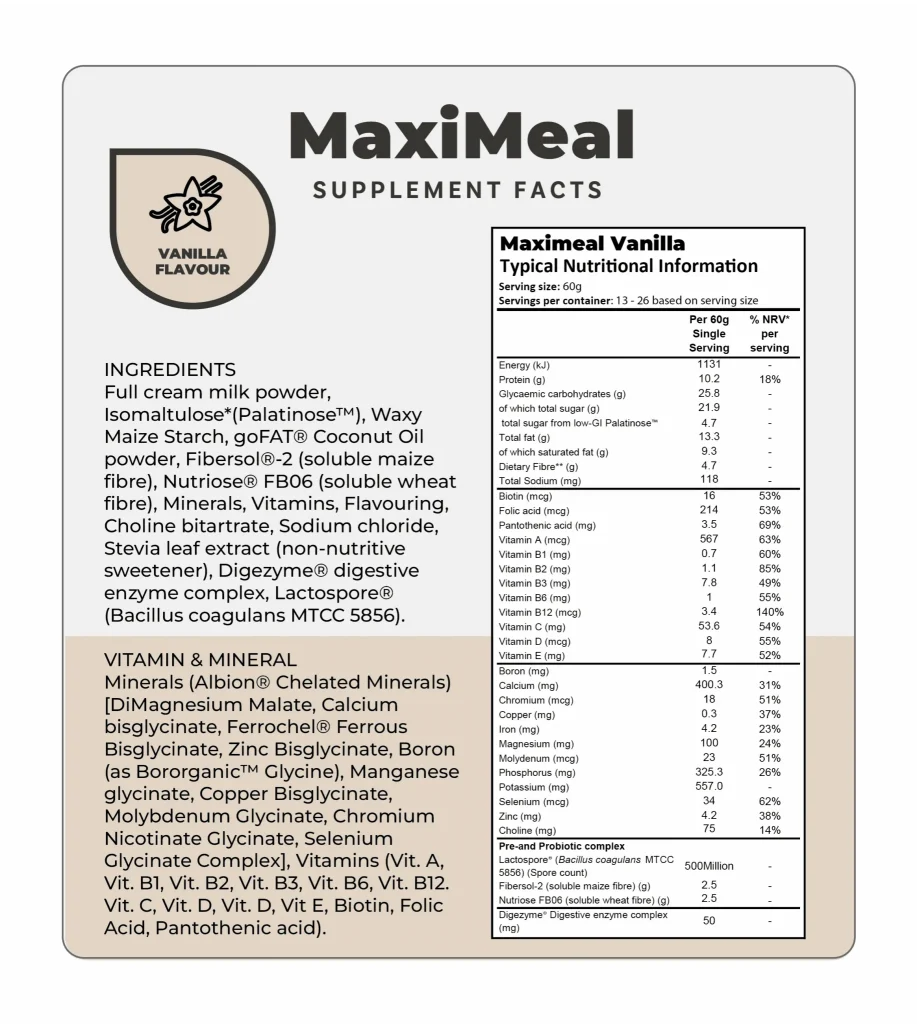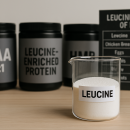Protein isolates, hydrolysates, and plant-based powders often steal the spotlight in the world of sports and health nutrition products.
However, sometimes, the most effective bases for supplements aren’t the newest or most exotic but the tried-and-true staples.
Whole milk powder (WMP) is one such ingredient. Long overlooked, it combines macronutrients, micronutrients, and bioactive compounds in a way that makes it a surprisingly effective foundation for functional nutrition products.
My Supplement Journey with Whole Milk Powder
For me, whole milk powder was more than just an ingredient. It was my starting point.
As a teenage aspiring supplement developer, I would “steal” milk powder from the kitchen and experiment with it.
I would mix in different ingredients, testing what worked and what clashed, and slowly mastering the art of building a functional shake. My kitchen was my laboratory before I ever had access to real labs.
Those experiments became the foundation of my understanding: that milk in its whole form is not just nourishment, but a versatile carrier of performance and health benefits.
Over time, those lessons shaped real products, eventually culminating in formulations like Maximeal, which carried forward the same principle: build from the whole, then layer in function.
What Is Whole Milk Powder?
Whole milk powder is liquid milk with the water removed, leaving behind a dry, shelf-stable powder that contains the natural proteins, fats, carbohydrates, and micronutrients found in fresh milk (but processing may reduce some micronutrient levels).
Unlike whey protein isolate or casein, which are fractionated components of milk that are food and supplement ingredients, WMP provides the whole food matrix.
This distinction is important: while dairy protein concentrates and isolates focus on maximising one nutrient (e.g., protein), WMP offers balance.
It contains both whey and casein in their natural ratio (80% casein, 20% whey), milk fats, lactose for carbohydrate energy, and a full spectrum of vitamins and minerals.

Nutritional Highlights of Whole Milk Powder
-
Balanced Protein Blend: Roughly 20% whey and 80% casein, giving both fast- and slow-digesting fractions. This dual-release profile supports both immediate and sustained amino acid delivery to the entire body. This combination delivers both rapid stimulation of muscle building (via whey) and long-lasting muscle protection and recovery support (via casein). It can be especially beneficial for athletes needing prolonged nourishment (e.g., between meals, before sleep) or anyone aiming for steady anabolic support (e.g. those recovering from illness).
-
Milk Fat Globules: milk fat carries bioactive lipids such as conjugated linoleic acid (CLA) and sphingolipids, which may support metabolic health and cell signaling. These are absent in skimmed milk powder and isolated proteins.
-
Lactose as Fuel: A natural carbohydrate source, often better tolerated when consumed as part of the whole milk matrix than as isolated lactose or more commonly as skimmed milk powder.
-
Micronutrients: Calcium, phosphorus, magnesium, zinc, and B vitamins are naturally present in meaningful amounts. A glass of milk made from about 25 g of whole milk powder provides a meaningful amount of key micronutrients. It delivers roughly 23% of the daily calcium requirement, 28% of phosphorus, 8% of magnesium, and 9% of zinc
-
Bioactive Components: Immunoglobulins, lactoferrin, and milk-derived peptides can exert antioxidant, antimicrobial, and immune-modulating effects.
Why Whole Milk Powder Works as a Supplement Base
-
Natural Macronutrient Synergy: Unlike a pure protein powder that often requires carbohydrate or fat fortification, WMP already provides a balanced ratio.
-
Digestibility and Satiety: Casein’s slow digestion helps sustain amino acid levels, while whey supports rapid post-exercise recovery. Combined, they improve nitrogen balance more effectively than either alone.
-
Versatility in Formulation: WMP can serve as a carrier for functional ingredients—such as creatine, probiotics, or phytonutrients—while providing taste, creaminess, and stability.
-
Cost-Effectiveness: It is typically cheaper than specialised isolates, making it attractive for mass-market functional foods.
-
Consumer Acceptance: Familiar, natural, and associated with “real food” rather than synthetic ingredients.
Applications in Sports & Health Nutrition
-
Meal Replacement Shakes: Offers protein, carbs, and fat in one whole-food source.
-
Weight Gain & Recovery Formulas: Natural energy-dense base that pairs well with additional protein or carb fortification.
-
Adolescent & General Wellness Nutrition: Balanced macronutrients and micronutrients make it ideal for growth and everyday resilience.
-
Functional Blends: A carrier for bioactives like beetroot powder, beta carotene, or anthocyanins—turning WMP into a nutrient-dense delivery vehicle.
Potential Limitations
Lactose Intolerance: A limitation for some consumers, though lactase enzyme addition can mitigate this.

Maximeal, an example of a meal replacement shake I developed and manufactured. Consisting of whole milk powder to which I added a blend of additional carbohydrates for sustained energy, MCTs for readily available fuel, a spectrum of vitamins and minerals to support growth and performance, as well as prebiotics and probiotics to promote gut health and overall digestibility.
Conclusion
Whole milk powder might not sound as cutting-edge as hydrolysed whey peptides or plant-based isolates, but in many ways, it’s the original functional supplement base. Its balance of proteins, fats, and carbohydrates—combined with naturally occurring micronutrients and bioactive compounds—makes it a highly underrated foundation for supplement formulations.
In an industry obsessed with fractions and isolates, sometimes the whole is greater than the sum of its parts. Whole milk powder reminds us that nature’s original formula is still one of the best.

To view my Professional Profile on LinkedIn: please click here
To see my latest product creations: www.bioteenhealth.com
To view my Scientific Publications on PubMed: please click here
To get in touch, please write to: info@supplementscientist.com
Follow supplementscientist.com on Facebook: please click here
Disclaimers
Medical: The information presented on this website is intended for adults 18 or over. Its aim is purely educational and does not constitute medical advice. Please consult a medical or health professional before you begin any program related to exercise, nutrition, or supplementation especially if you have a medical condition. If you consume any product mentioned on our site, you do so on your own free will, and you knowingly and voluntarily accept the risks.
Other: The views expressed in this blog article are solely mine and do not represent the opinions or positions of any company or institution with which I am associated. Any information or opinions provided are based on my personal experiences, research, and understanding. I strive to ensure accuracy and reliability of the information provided.
© 2025. Supplementscientist.com







Leave a Reply